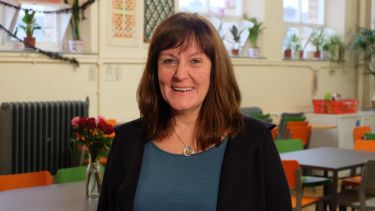We are pleased to announce the appointment of Professor Louise Dye as co-Director of the Institute for Sustainable Food. Professor Dye is currently Professor of Nutrition and Behaviour at the University of Leeds where she has been leading on Diet and Health for the Global Food and Environment Institute and where she previously led Leeds’ contribution to the N8 agri-food programme.
Professor Dye is a Chartered Health Psychologist. Her main research interests are on the effects of food on health (particularly cognitive health) throughout the life course including the effects of breakfast on cognitive performance and academic outcomes in children and adolescents. She is also interested in how food can be used to maintain cognitive function in older age.
She was elected as President of the International Life Sciences Institute (ILSI Europe) in 2021 and Co-Chair of ILSI Global in 2022. Professor Dye chairs BBSRC’s Strategic Advisory Panel ‘Biosciences for Integrated Understanding of Health’. She is currently a co-investigator on the Sheffield-led H3 project: Healthy soil, Healthy food, Healthy people.
She will take up her appointment in January 2024 and will also hold a Chair in Psychology alongside her role as co-Director of the Institute.
Commenting on her appointment, Professor Dye said “I am delighted to be joining the Institute for Sustainable Food at the University of Sheffield, working with my valued colleagues from N8 Agrifood and developing new multi- and interdisciplinary collaborations across the University. I hope to contribute to the high quality, impactful research for which the Institute has an excellent reputation and together we can achieve real world benefit at home and abroad, at a time when many of people face significant challenges to obtain a healthy, sustainable, safe and affordable food supply.”

